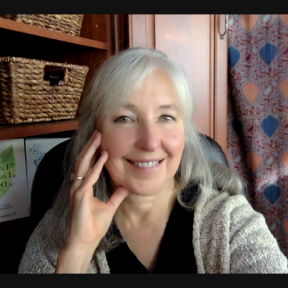Introduction:
Conflict is an unavoidable part of life, and knowing how to handle it effectively is essential for maintaining healthy Relationships and achieving positive outcomes. But what happens when you’ve tried everything, and it feels like you’ve run out of options? That’s where advanced conflict resolution strategies come into play. Here are five powerful ways to master conflict resolution, even when the situation seems at a standstill.
1. Revisit the Issue with Fresh Eyes
Why Revisit the Issue with Fresh Eyes is an Effective Way to Learn What to Do When You Run Out of Options in Conflict Resolution
- Gain New Perspectives: When you’re deeply involved in a conflict, it’s easy to become entrenched in your viewpoint, making it difficult to see alternative solutions. By stepping away and revisiting the issue with fresh eyes, you allow yourself to gain new perspectives. This renewed outlook can reveal options you hadn’t considered before, which is crucial when traditional conflict resolution methods seem exhausted.
- Reduce Emotional Intensity: Conflict resolution often becomes more challenging when emotions run high. Taking a break and coming back to the issue later can help reduce the emotional intensity, allowing you to approach the situation more calmly and rationally. This calmer mindset makes it easier to identify new paths to resolution that may not have been apparent in the heat of the moment.
- Encourage Creative Thinking: Revisiting the issue with fresh eyes encourages creative thinking, which is essential in conflict resolution when standard approaches have failed. A break from the situation can clear mental blocks, helping you think outside the box and come up with innovative solutions that can break the deadlock.
- Prevent Escalation: When you feel like you’ve run out of options, pushing forward without a clear strategy can escalate the conflict. Taking the time to revisit the issue allows you to pause, reflect, and approach conflict resolution with a more thoughtful and measured approach, reducing the risk of making the situation worse.
- Foster Patience and Reflection: Revisiting the issue fosters patience and encourages reflection, both of which are vital in effective conflict resolution. This process helps you better understand the underlying issues and motivations, leading to more informed and constructive actions when you return to the table.

2. Seek Mediation or Third-Party Help
- Provides an Objective PerspectiveWhen you reach a standstill in conflict resolution, emotions can cloud judgment, making it difficult to see the situation clearly. A mediator or third-party offers an objective viewpoint, helping to remove personal biases from the equation. This fresh perspective can uncover new angles or solutions that might have been overlooked, breathing new life into the conflict resolution process.
- Facilitates Open CommunicationMediators are trained to facilitate communication between parties in conflict. They ensure that each person has the opportunity to express their thoughts and feelings in a structured environment. This can be especially useful in conflict resolution when communication has broken down, as it helps re-establish a dialogue and paves the way for finding common ground.
- Introduces New Conflict Resolution StrategiesA third-party mediator brings expertise in conflict resolution techniques that you might not be familiar with. They can introduce strategies and methods that you haven’t considered, offering a range of options for moving forward. This can be particularly valuable when you feel like you’ve run out of options, as it opens up new pathways to resolve the conflict.
- Reduces Tension and Emotional IntensityThe presence of a neutral third-party can help de-escalate the emotional intensity of the situation. Mediators are skilled at calming tensions and ensuring that the discussion remains respectful and productive. By reducing the emotional heat, they make it easier to engage in effective conflict resolution, even when the situation seemed irreparable.
- Encourages Mutual UnderstandingA mediator’s role is to help both parties understand each other’s perspectives, which is a crucial element of conflict resolution. When you’ve exhausted your options, understanding where the other person is coming from can lead to breakthroughs in finding a solution. Mediation fosters this mutual understanding, making it easier to find a resolution that satisfies everyone involved.
3. Focus on Common Ground
- Shifts the Dynamic from Adversarial to CollaborativeIn conflict resolution, focusing on common ground helps shift the dynamic from a confrontational stance to one of collaboration. When you emphasize shared goals or values, it changes the conversation from “us versus them” to “we’re in this together,” making it easier to find a path forward when options seem limited.
- Reduces Tension and Builds TrustHighlighting areas of agreement in conflict resolution can reduce tension and build trust between the parties involved. When both sides recognize that they share common interests, it creates a foundation of trust, which is crucial for exploring new solutions and overcoming deadlocks.
- Opens Up New Avenues for CompromiseFocusing on common ground in conflict resolution can open up new avenues for compromise that might not have been considered before. By identifying what both parties agree on, you can more easily identify mutually acceptable solutions, even when it feels like you’ve run out of other options.
- Encourages Positive CommunicationIn conflict resolution, emphasizing common ground encourages positive communication. When the conversation centers on shared objectives rather than differences, it fosters a more constructive dialogue, making it easier to brainstorm and collaborate on solutions that address the needs of both parties.
- Prevents EscalationBy focusing on common ground, conflict resolution efforts can prevent the situation from escalating. When both sides feel that their core interests are acknowledged and respected, there’s less likelihood of the conflict intensifying, which is especially important when it feels like all other options have been exhausted.
4. Practice Listening To Emotions
1. Uncovers Hidden Issues
Listening to emotions allows you to go beyond the surface of the conflict and uncover underlying issues that may not be immediately apparent. Often, conflicts persist because the emotional needs of the parties involved haven’t been addressed. By tuning into these emotions, you can identify the root causes of the conflict, which can open up new avenues for conflict resolution when traditional methods have failed.
2. Builds Empathy and Understanding
In conflict resolution, understanding the emotional landscape of the other person is crucial. When you listen to emotions, you build empathy, which helps you see the situation from the other person’s perspective. This deeper understanding can break down barriers and foster a sense of connection, making it easier to find mutually acceptable solutions, especially when you feel out of options.
3. Defuses Tension
Emotional tension often escalates conflicts, making resolution seem impossible. By practicing listening to emotions, you acknowledge and validate the feelings of those involved, which can defuse the intensity of the situation. This calming effect is essential in conflict resolution, as it creates a more conducive environment for finding solutions when you feel like you’ve exhausted all other options.
4. Promotes Open Communication
Conflict resolution is often hindered by a lack of open and honest communication. When you listen to emotions, you encourage the other party to express themselves more freely, leading to a more open dialogue. This openness can reveal new information or perspectives that you hadn’t considered, providing fresh options for resolving the conflict.
5. Be Willing to Compromise
Why Being Willing to Compromise is an Effective Way to Learn What to Do When You Run Out of Options in Conflict Resolution
- Breaks Deadlocks
- When you’ve exhausted all options and the conflict remains unresolved, compromise can break the deadlock. By being willing to give a little, you create an opportunity for both parties to move forward. This can be especially effective when neither side is willing to fully concede, allowing both to feel that their concerns have been addressed, at least in part.
- Fosters Mutual Respect
- Compromise shows that you respect the other party’s needs and are open to finding a middle ground. This mutual respect can soften the rigidity of the conflict, making it easier for both sides to cooperate. In situations where emotions run high and positions are entrenched, demonstrating a willingness to compromise can be the key to opening up a dialogue.
- Prevents Escalation
- When options seem limited, conflicts can easily escalate as frustration builds. Compromise helps prevent this by providing a solution that avoids all-or-nothing outcomes. It allows both parties to save face and maintain a relationship, which is crucial in personal and professional contexts where ongoing interaction is necessary.
- Creates a Win-Win Scenario
- Compromise often results in a situation where both parties walk away feeling like they’ve gained something, even if it’s not everything they wanted. This win-win scenario is a cornerstone of effective conflict resolution because it satisfies the basic needs of both sides, reducing the likelihood of future disputes.
- Encourages Flexibility
- Being willing to compromise teaches flexibility, a critical skill in conflict resolution. It encourages you to think creatively and find solutions that are not immediately obvious. This flexibility can lead to new approaches and insights, helping you navigate difficult situations more effectively when options are limited.
Conclusion
Effective conflict resolution requires creativity, patience, and a willingness to adapt when conventional strategies fall short. By revisiting the issue with fresh eyes, seeking third-party help, focusing on common ground, listening to emotions, and being open to compromise, you can navigate even the most challenging conflicts. These powerful techniques not only help you find solutions when you feel stuck but also enhance your overall conflict resolution skills, making future disagreements easier to handle. Remember, conflict resolution is about finding a path forward, even when it seems like all options have been exhausted.

















































